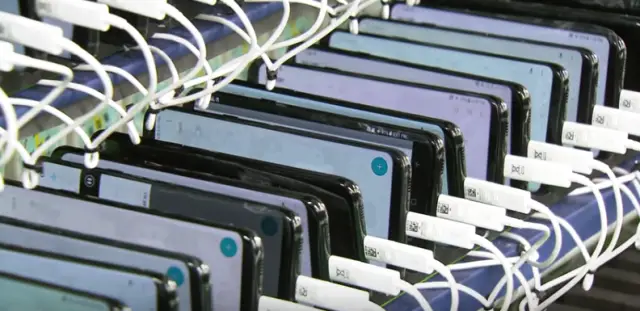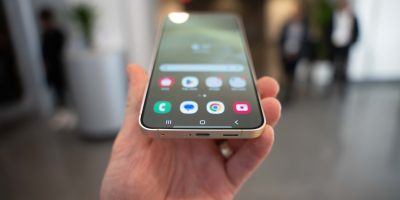After the Galaxy Note 7 debacle, we wouldn’t blame you for being just a little but curious about the updated testing procedures Samsung is employing. They’d already detailed some of those new procedures, including the 8-step battery check to ensure their phones don’t once again become known for sudden fiery deaths.
Now, we have an actual look into the facility where they conduct these tests. The company’s Korean YouTube account posted a quick video showing us various points of their testing process.
The video is in Korean, so here’s a quick timeline of what you’re seeing in each part of the video:
- 0:15: Fields of Galaxy S8 devices are undergoing automatic cycle tests to simulate accelerated device usage. They undergo fast charging, discharging, and cycle through browsing, calling, and other general app tests. By the end of it all, they will have simulated 1.5 years’ worth of usage in just 5 days.
- 0:50: Human testers inspect the devices to ensure they’re working consistently during and after the simulations.
- 1:28: We’re not exactly sure what’s happening here. Perhaps Samsung is testing how much of a certain type of energy the devices emit? Perhaps it’s simply testing the amount of heat being produced? Again, we don’t know.
- 1:45: Samsung conducts battery compression tests to ensure their batteries can hold up to immense amounts of pressure. It’s said the batteries are designed to withstand 4,500 pounds of force, a mark that not even a car or rhinoceros would be able to exert. Samsung conducts their own battery tests despite the suppliers giving the green light. If a single battery from a batch of even 15,000 batteries fails this test, the entire batch is sent back to the supplier.00
Details we’ve heard from other accounts of tours from within Samsung’s testing facilities include robots which test devices for various defects and automatically spits out failed ones, network tests where American cellular networks are simulated, and more.
There haven’t been any reports of incidents or any concerns for the Samsung Galaxy S8 and S8 Plus in the early going, so it may be safe to say that the company’s exhaustive new testing procedures have paid off. Knock on your nearest piece of wood just in case.












Comments